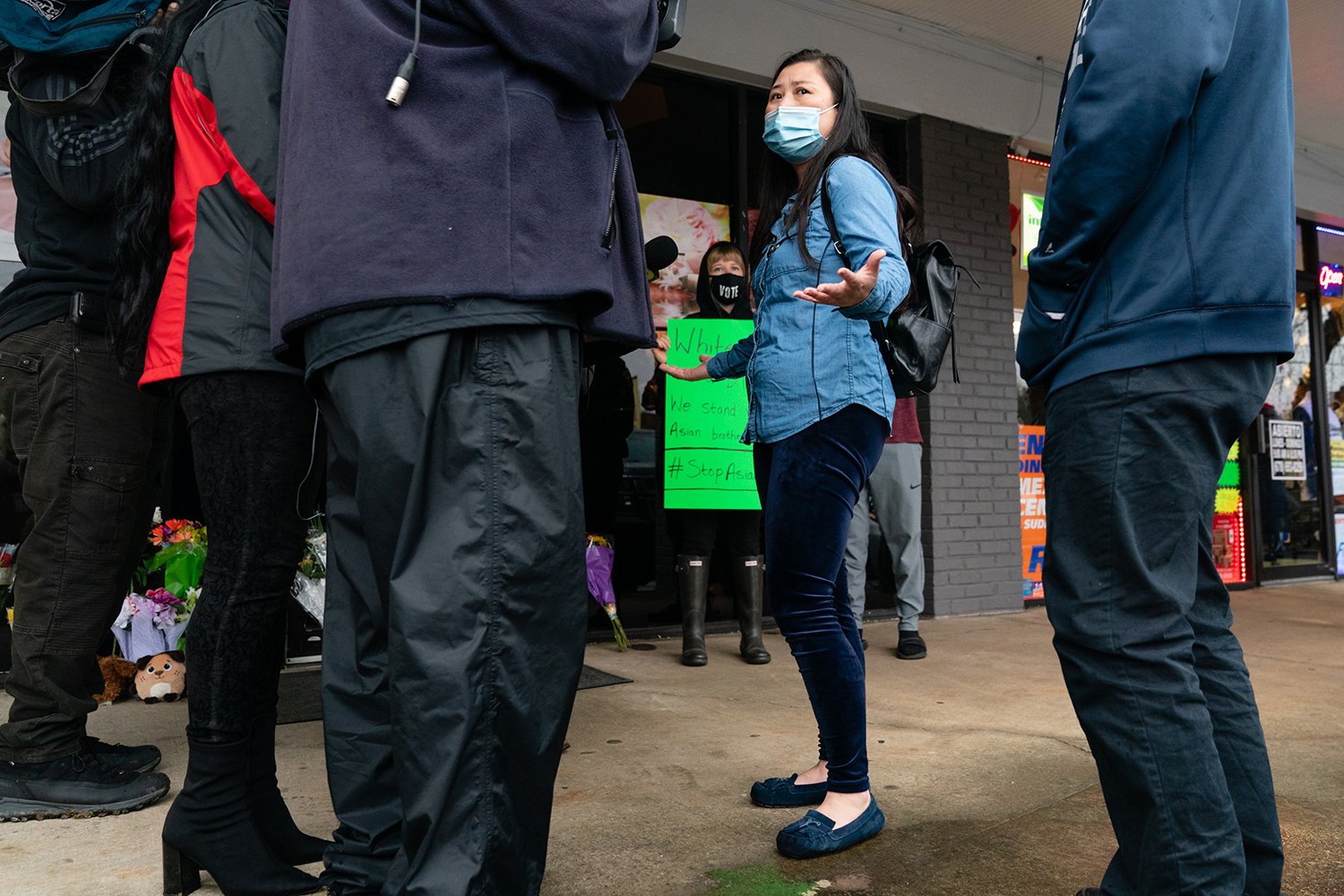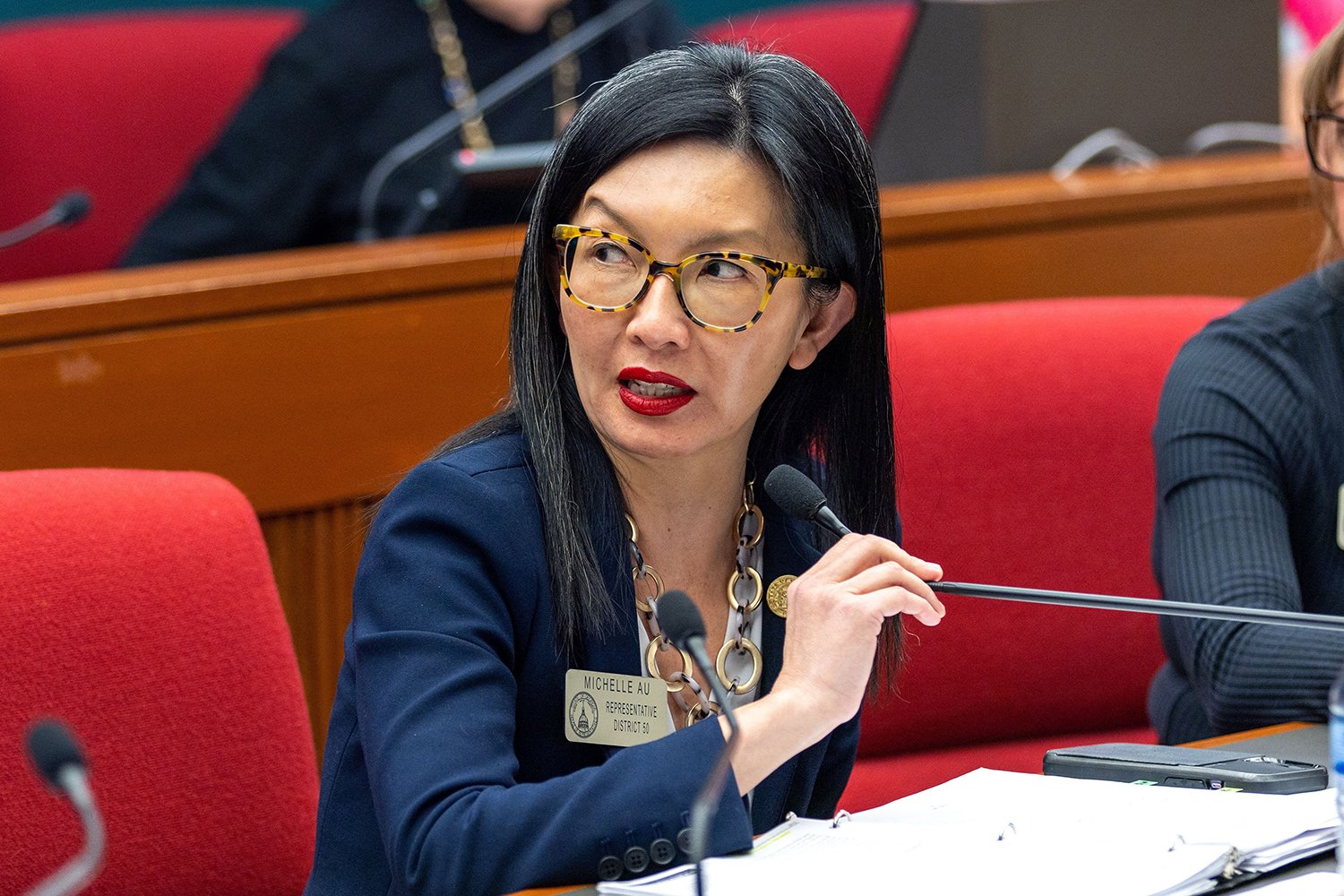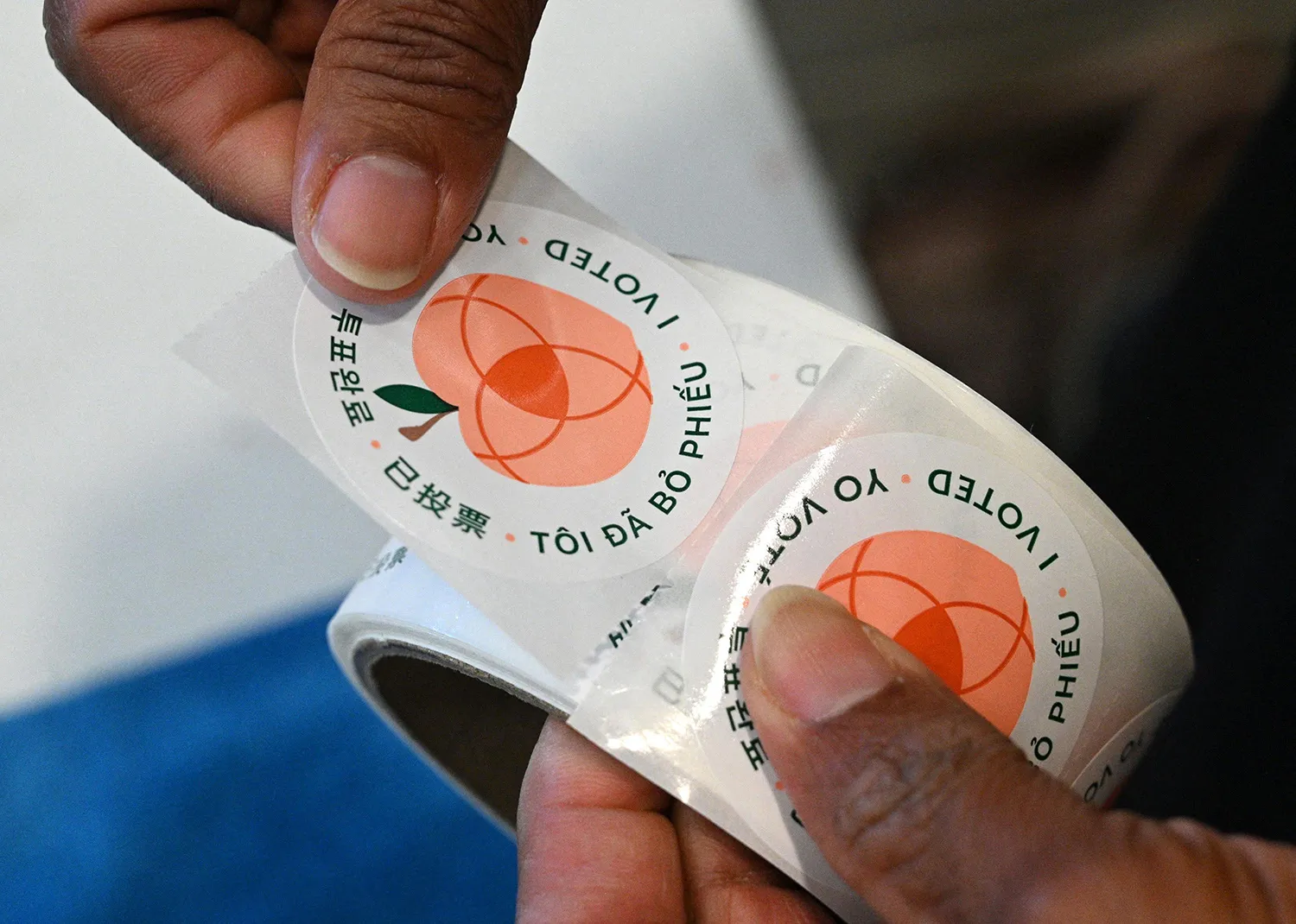Since entering Georgia politics in 2020, state Rep. Michelle Au has been called every name in the book: Chinese spy, foreign plant, “agent of the Chinese Communist Party.”
Au recalled this experience in March as she pushed back against a bill to ban “agents“ of China and other “foreign adversaries“ from purchasing farmland in the state, as well as property near military installations. The bill’s mostly Republican backers argued that it would defend against national security threats; Au and other critics warned that the measure would fuel xenophobia.
“It stokes this suspicion and this sensibility that many of us face in our everyday lives—even before this type of bill was being passed—that Asian Americans and Chinese Americans in particular are perpetually foreign,” said Au, a 46-year-old anesthesiologist and a Democrat in Georgia’s House of Representatives. “We are cast under a light of suspicion that other immigrants are not.”
The bill, which was signed into law in April, reflects how concerns about China’s influence loom large in Georgia, a swing state that proved key in the 2020 U.S. presidential election and that both former President Donald Trump and Vice President Kamala Harris are desperate to win on Nov. 5. It’s not just land ownership that has raised national security concerns in the state. Georgia Tech, a top public university, recently severed a long-standing partnership with a Chinese university.
- A child brings flowers to a mural site on March 21, 2021, in Atlanta. The mural is in remembrance of the eight people killed in the spa shootings that year. Megan Varner/Getty Images
- Lijing Zhao, owner of JoJo’s Massage, speaks to the media after laying flowers outside the spa in Acworth, Georgia, on March 17, 2021, where people were shot and killed. Elijah Nouvelage/Getty Images
At the same time, Chinese American communities are intimately familiar with how rocky U.S.-China relations and inflammatory rhetoric can stoke hostility against Asian Americans, which surged nationwide in the wake of the COVID-19 pandemic, during Trump’s presidency. In Georgia, fears about hate crimes intensified after a gunman stormed three spas in Atlanta in 2021 and killed eight people, six of whom were Asian women.
“While attention may have moved from [the 2021 shootings], the fear that Asian Americans, Chinese Americans [feel] is still very much there,” said Marvin Lim, another Democratic state representative in Georgia. He added that these communities have long grappled with the question of where they fit in.
Georgia’s Chinese American community, which today consists of more than 80,000 people, accounts for just a slice of the state’s electorate. But it offers a window into how geopolitical pressures weigh on Chinese American voters ahead of an election partly defined by a U.S. hawkishness toward Beijing.
“Asian American voters in Georgia are the fastest-growing voting demographic and voting bloc,” said Murtaza Khwaja, the executive director of Asian Americans Advancing Justice-Atlanta, a legal advocacy group. It’s, he said, “an electorate that wants to see themselves represented and see candidates emerge from those communities.”
Georgia’s Asian American and Pacific Islander (AAPI) population has grown by more than 50 percent since 2010, with many people settling in the Atlanta-area counties of Forsyth and Gwinnett. In 2020, they made their electoral power clear. Voter turnout among the group surged by a staggering 84 percent compared to the 2016 election—an increase that helped Biden win the battleground state and the Democrats take the Senate.
Those trends were also visible nationally, as Asian Americans—a group long overlooked by both politicians and pollsters—increased their turnout by 40 percent, with most of those ballots cast for Biden. The bloc could be even more decisive this time around. Between January and June, Asian Americans logged the sharpest increase in voter registration of any racial group in the United States, compared to the same period in 2020.
“As the fastest-growing racial group in the country and also the fastest-growing electorate in this country, we are stating very clearly that elected officials can no longer take us for granted,” said Cynthia Choi, the co-founder of Stop AAPI Hate, a U.S.-based coalition. “We deserve to have our rights protected. We deserve to feel that we can establish roots in this country. We deserve to have protections and to feel safe.”
This political evolution is underway as competition with China has become one of the rare areas of bipartisan agreement in Washington. Trump spent his four years in the White House waging a trade war with China and using inflammatory language that deepened concerns about xenophobia against Chinese and Asian Americans. After taking office in 2021, President Joe Biden expanded on many of Trump’s policies with his own campaign of tariffs and tough restrictions; Harris is expected to take a similarly hawkish approach.
Chinese Americans’ voting preferences remain somewhat hazy, in part because the community is not monolithic, with deep political divisions across generations, professions, proximity to immigration, gender, and education level. Like other Asian American demographic groups, many Chinese Americans also do not have long familial traditions of voting for Republicans or Democrats, resulting in weaker party affiliation.
Georgia state Rep. Michelle Au on Feb. 23.Arvin Temkar/The Atlanta Journal-Constitution via Reuters
The AAPI community has “a lot of new American voters. We have a lot of naturalized citizens, people who maybe haven’t voted in the past,” said Au. “If you’re thinking about just the math of it, these are voters who are up for grabs.”
There are some overarching trends. Nationally, the majority of Chinese American voters lean Democratic, according to the Pew Research Center. They also largely favor Harris over Trump; A 2024 voter survey by AAPI Data found that 65 percent of Chinese American respondents backed Harris, compared to 24 percent who preferred Trump. Forty-five percent of respondents believed that Harris would do a better job dealing with China—more than double the percent that supported Trump’s approach.
The outlook is more complicated along individual issue areas. Take economic policy, which remains a top concern for Georgia’s Chinese Americans, according to Khwaja. “Many in the Chinese American community here in Georgia are small-business owners or physicians who own their practice or of the like,” he said. “The economy is an incredibly important issue for them.”
Yet Chinese American voters overall are divided on which party does a better job when it comes to economic policy. According to one survey by AAPI Data, one-third of Chinese American respondents believed Republicans had a better approach to jobs and the economy, which only slightly edged out the 31 percent who favored the Democrats and the 29 percent who felt there was no difference between the parties. One-third of Chinese American respondents also favored Republicans’ record on inflation, compared to the 26 percent who preferred that of the Democrats.
It’s also difficult to tell how U.S.-China relations will sway the vote among the demographic. Among Asian Americans, Chinese Americans are the only group in which the majority does not view their ancestral homeland favorably, according to Pew, underscoring how some voters may prefer a tough-on-China approach in this year’s election.
A poll worker prepares stickers with messages in multiple languages at a Gwinnett County early voting location in Stone Mountain, Georgia, on Oct. 22, 2022. Hyosub Shin/Atlanta Journal-Constitution via Reuters
Fei-Ling Wang, a professor of international affairs at Georgia Tech, said that some Chinese Americans in Georgia may favor Trump because his rhetoric makes him seem tougher on Beijing than Harris—even if that’s not necessarily true in practice. “Many Chinese Americans, in my opinion, they sort of read the rhetoric more than [the] substance,” he said.
On the other hand, some voters may worry about what that kind of tough talk means for them. Nearly two-thirds of Chinese Americans believe that the current U.S.-China relationship negatively affects how they are treated, according to a recent study by the nonprofit Committee of 100 and NORC at the University of Chicago. More than 80 percent of respondents expressed concern about how both presidential candidates’ rhetoric toward China could fuel discrimination in the United States.
“The majority of domestic xenophobia and anti-Asian sentiment is driven by American foreign policy,” Khwaja said. “I think even those that would be supportive of legislation or … rhetoric critical of the Chinese government, there’s a reservation and caution of the form that it’s taken and how they themselves and their families would be targeted.”
These issues could prove pivotal on Nov. 5 in the battleground of Georgia, where polls are pointing to a thin margin between Harris and Trump; as of Oct. 16, polling averages showed Trump in the lead by around one point. Four years after Asian Americans in Georgia showed up at the polls in record numbers, those same voters may now be gearing up for another round.
“I was told as a first-time candidate, ‘Don’t bother talking to Asian voters because Asian people don’t vote,’” Au said. “I think we’re realizing that that is wrong, and people are now actively like, ‘Oh, we were sleeping on the Asian Americans. We’ve got to get them to vote for us.’”




